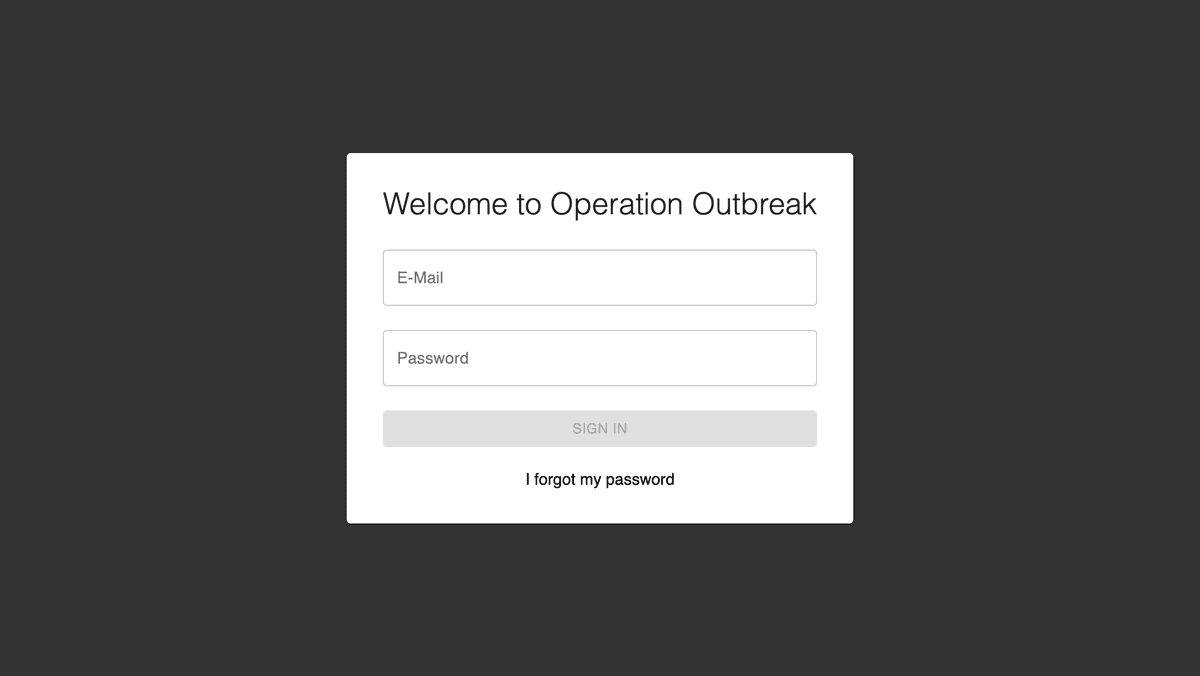Operation Outbreak
Operation Outbreak is a platform for infectious disease preparation, education, and tracking. My role involved building the admin app for managing simulations and extending the Go-based API by adding a new feature called "Pauses", implementing custom pathogen functionality, and updating dependencies.
SKIP TO
- Omari Mendoza — Engineering
- Leonardo Pérez — Engineering

Project Background
Operation Outbreak (OO) is a comprehensive infectious disease preparation, education, and data generation platform. It serves three main purposes:
-
Training: OO provides a safe environment for participants to undergo outbreak response training, allowing them to experience and learn from the behaviors that arise in such emergencies.
-
Education: The platform offers an engaging educational experience in the fields of biology and epidemiology of infectious diseases. It equips participants with practical skills across various domains.
-
Data Generation: OO introduces a new system for data generation and epidemiological modeling of outbreaks, enabling the development of tools for real-world settings.
The platform integrates a classroom curriculum, combining science and humanities learning objectives, with an experiential learning campus-wide outbreak simulation. This simulation is facilitated by a mobile app that utilizes Bluetooth mesh communication to spread a virtual pathogen among the participants.
Phase 1: Admin app
During phase 1, my primary responsibility was to build out the admin application, which served as a management tool for the simulations (that ran on Flutter based mobile apps on iOS and Android). The Admin app allowed for the addition of new simulation managers, creation of simulations, and association of pathogens and other simulation metadata. I implemented Auth using Cognito and hosted the admin using AWS Amplify to power continuous integration.

Phase 2: Go API
In the second phase, my role was to extend the existing Go-based serverless API. My tasks included implementing custom pathogen functionality and updating all serverless dependencies. To enhance the development and testing environment, I integrated LocalStack, a tool that simulates AWS cloud services locally. This allowed for more efficient development and testing processes and the testing of API code before it goes live. Additionally, I introduced a new feature called "Pauses" within the simulation. This functionality allowed for the scheduling of pause periods during a simulation, enabling simulation managers to simulate real-world scenarios with intermittent breaks.
Conclusion
Operation Outbreak's infectious disease preparation, education, and data generation platform serves as a crucial tool in training, educating, and generating valuable data for real-world outbreak scenarios. By building the admin app and extending the API to support Pauses, I helped enhance the platform's functionality and enabled more efficient and user-friendly management of active simulations.
Coverage and Awards
Wired: A School Ran a Simulation of the Pandemic—Before the Pandemic
The New York Times: The Future of Virus Tracking Can Be Found on This College Campus